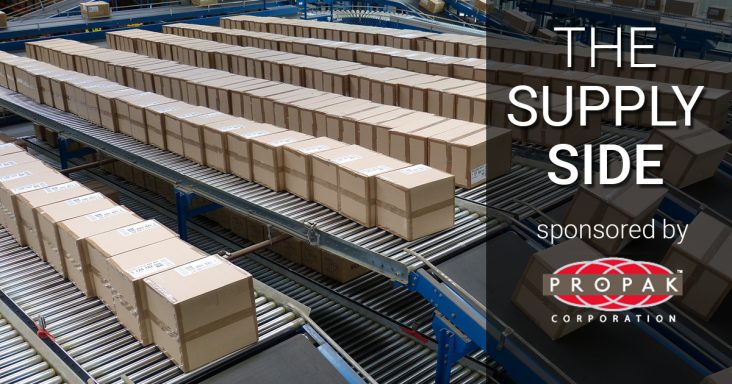The Supply Side: More Walmart suppliers adjust to inflation, changing demand
by March 25, 2023 10:22 am 1,403 views

The consumer packaged goods and beverage industries are highly competitive. They continually try to retain or expand their retail distribution points as private label and niche brands are popular among major retailers and consumers.
Conagra Brands and Kraft Heinz recently announced they were paring down their product lines amid falling demand and persistently high input costs. Coca-Cola recently pruned its 400 brands by taking out roughly half of the offerings that only represented about 2% of total sales.
“We always have to remember that it’s not just about the portfolio that will fit on the PowerPoint page. It’s about the portfolio that will fit in the facings in a store. The valuable real estate doesn’t just have to do the most it can in terms of rotations and dollars for us. Most importantly, the retail customer is not going to give shelf space unless it works for them and works for their consumers. The task of pruning and growing the portfolio is constant,” Coca-Cola CEO James Quincey said at the recent CAGNY Investor Conference held in Boca Raton, Fla.
At the same conference, Conagra Brands CEO Sean Connolly spoke about its portfolio’s evolution, which sometimes means replacing items with options consumers want. The company recently discontinued Marie Callender’s chocolate chip cookie dough cream pie to make room for a sugar-free apple pie. Connolly said Marie Callender’s is a $1 billion brand consumers love, but there was a need for a no-added-sugar dessert in the freezer case. He said culling and revamping the brands in its portfolio is an ongoing initiative resulting from changing consumer preferences and corresponding sales declines.
Cookie maker Mondelez recently reduced some of the flavor offerings in its Oreo brand that had become too complex with varying packaging sizing and flavor profiles. Mondelez CEO Dirk Van de Put said the company has a clear rule on replacing old products with new ones: “one in, one out.” He admits the company had too many flavor profiles in its Oreo brand and is now looking for more simplicity.
In recent months Kellogg’s discontinued the Special K protein shake line of products because of supply chain disruptions for key ingredients like creatine and whey protein and rising ingredient costs that rendered production unsustainable. Nestle has discontinued the Lean Cuisine paninis product line for similar reasons, with no intent to return production this year. Kraft Heinz has discontinued the Heinz Real Mayonnaise product as it failed to provide the sales and margin target amid the rising cost of eggs.
Each company mentioned has also raised product prices to help offset the rising input costs. Conagra said that despite two rounds of price hikes, the lag time on pass-through benefits is 12 to 15 months. Connolly said the company began seeing inflationary pressures as early as the last quarter of 2021. He said inflation greatly hindered margins for five quarters until they improved in early fiscal 2023.
Van de Put said the latest price increases in December should be enough to sustain margins through 2023 as long as inflation continues to moderate.
“We hope those costs will start to come down in the second half of the year,” he said. “Price points have gone up, but they are still acceptable to consumers who consider snacks and sweets an affordable indulgence.”
Connolly and Van de Put noted the proliferation of private-label products in many categories but said frozen and indulgent snacks and sweets had seen less competition. Connolly said ConAgra focuses on driving higher-margin product growth in the frozen food segment. He said the company got out of the commodity-driven categories of liquid eggs, dairy and cooking oils that have seen private brands take share in the past year.
He said the Health Choice frozen entree brand had been revamped into progressive wellness offerings with grain-free, zero sugar and high protein products that consumers seek. After the update, the newer progressive wellness offerings range in price from $4.05 to $4.45. He said the old average price point on the legacy Healthy Choice products was $2.46.
“Our margins are better, and more importantly, the customer is getting a higher-quality entree that better fits their dietary needs,” Connolly added.
Other product revamps of the Birds Eye brand also look to drive more profit while giving shoppers popular vegetable entrees. The average frozen bag of vegetables before the revamp was $1.45. Birds Eye now offers oven-roast, skillet-fry and oven-baked varieties of low-carb vegetables that sell for an average of $4 each. The company also unveiled zucchini fries, cauliflower wings, and fried green bean types, which sell at an average price of $4.53.
Connolly said consumers have not balked at price increases because they still provide value to other options and a convenient way to follow the lower-carb lifestyle. He also said budget-conscious consumers seek quality restaurant meals at home. He said the company’s P.F. Chang’s line has continued to gain share so the company launched a line of heat and serve entree sides like teriyaki broccoli. Conagra is also bringing Wendy’s chili to U.S. grocery stores. Connolly said the canned product would allow families to enjoy the restaurant-quality chili at home. Conagra also took the shelf-stable Asian La Choy brand and moved it to the freezer.
Walmart has also warned suppliers not to try and push price increases through the year merely to offset higher inputs. Walmart Chief Financial Officer John Rainey recently said the company recognized suppliers were dealing with elevated costs but said Walmart is using data and leveraging metrics in negotiations with suppliers to pass on lower prices to consumers.
Editor’s note: The Supply Side section of Talk Business & Politics focuses on the companies, organizations, issues and individuals engaged in providing products and services to retailers. The Supply Side is managed by Talk Business & Politics and sponsored by Propak Logistics.
